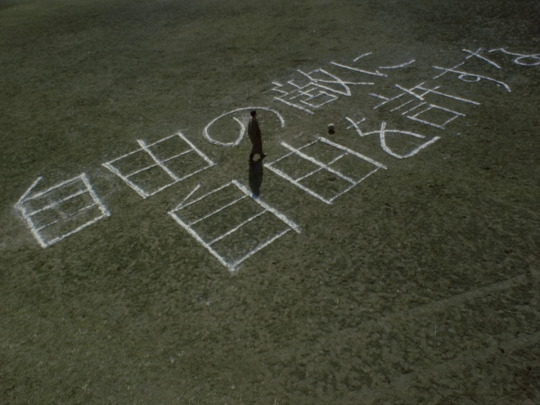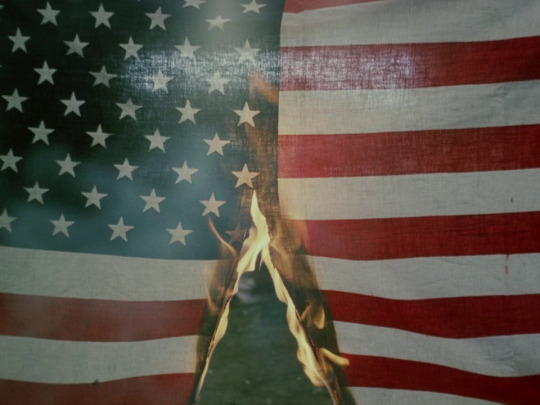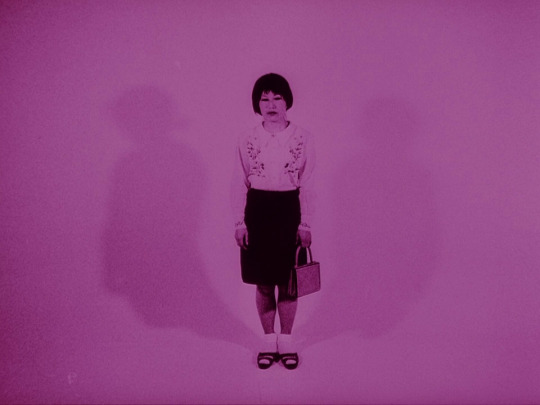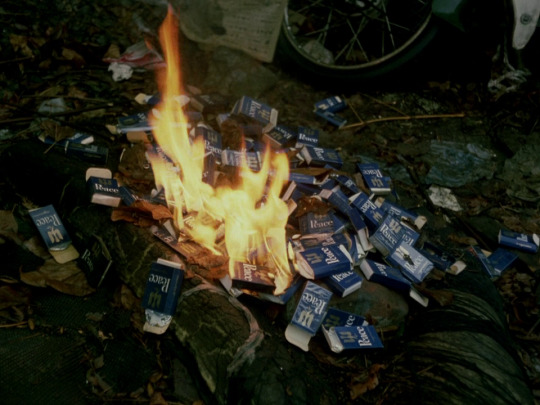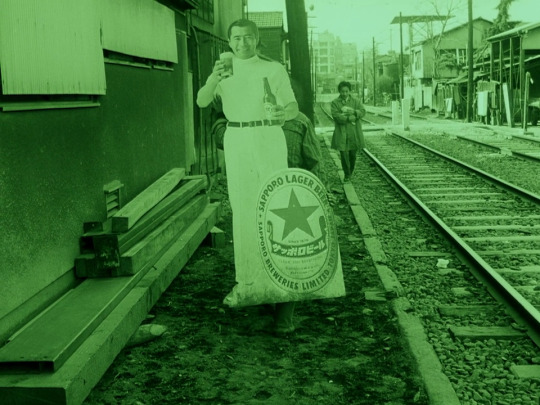#throw away your books rally in the streets (1971)
Text

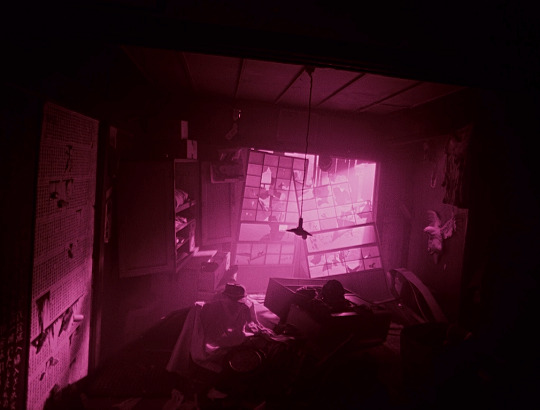
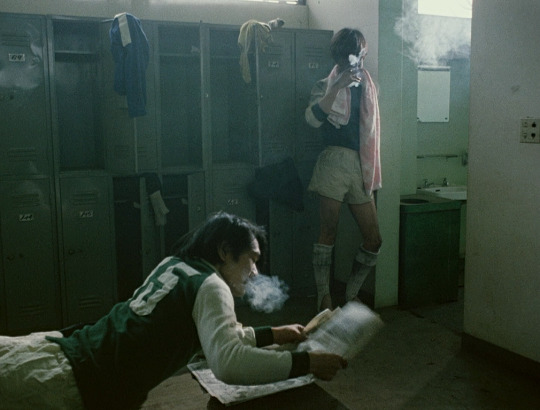
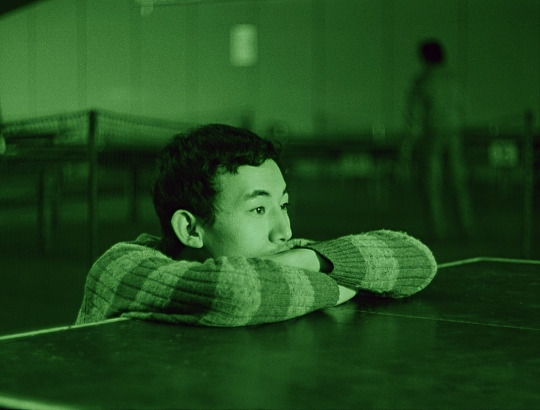
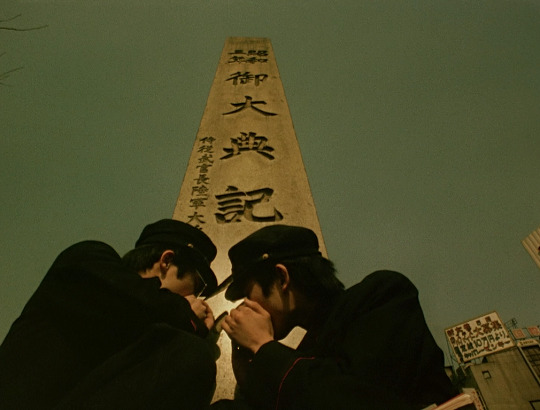


Throw Away Your Books, Rally in the Streets (1971) // dir. Shūji Terayama
#Throw Away Your Books Rally in the Streets#書を捨てよ町へ出よう#Shuji Terayama#my caps#my edits#*shujiterayama
356 notes
·
View notes
Text
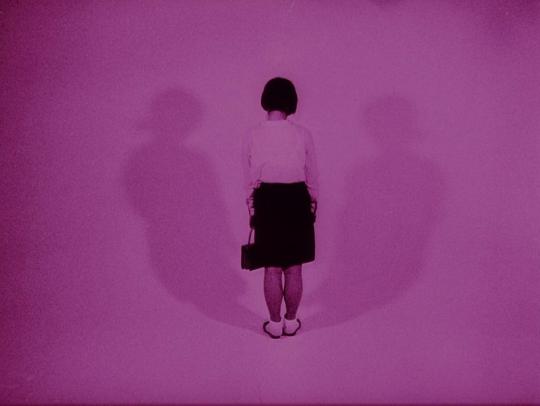
Shuji Terayama
Throw Away Your Books and Rally in the Streets, 1971
259 notes
·
View notes
Text
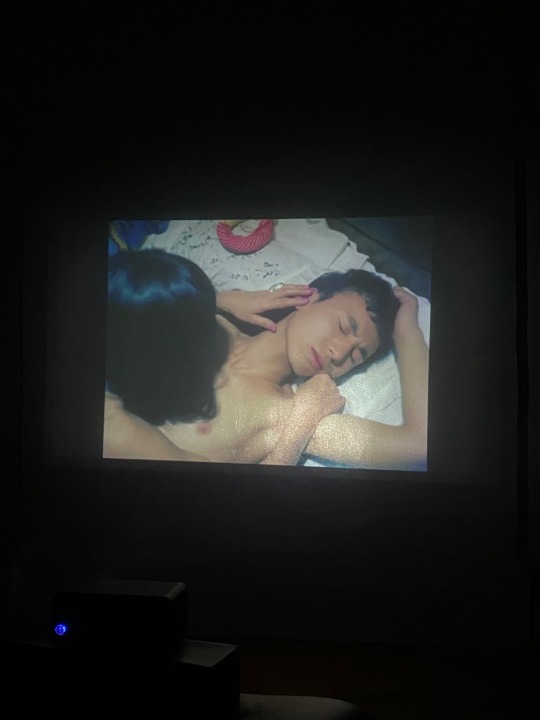
Throw Away Your Books, Rally in the Streets (1971) dir. Shūji Terayama
16 notes
·
View notes
Text
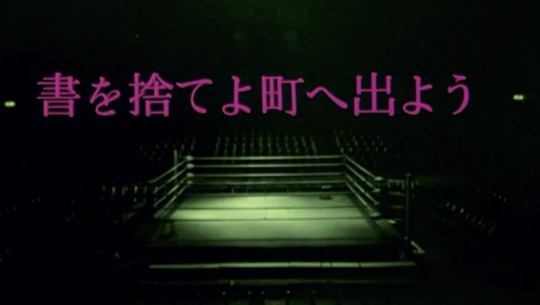
Throw Away Your Books, Rally in the Streets, 1971
17 notes
·
View notes
Note
Re that post about Kenzaburo Oe, you mentioned the term 1968 kids, talking about him and Hayao Miyazaki, how would describe that group? I get the gist of a certain kind of utopian artist from that generation, but I haven't heard it before, wondered if there was any other traits/anyone else you'd put in that group?
Definitely worthy of a fuller write-up, and I wish I had a concrete "unifying" source for all this, but Japan had a rapidly growing leftwing radical movement in the 1960's. The Anpo protests, a huge series of demonstrations against the US-Japan Security Treaty (which gave the US military bases in Japan) from 1959-1960 were the launching point, and they built on growing movements of unionization, environmental activism, and anti-militarism. It culminated in the 1968 seizure of much of the campus of the University of Tokyo by the 'Zenkyōtō' student activist faction, which was part of a global wave of student activism in 1968.
And like in so many places, 1968 was this movement's high water mark - they were awash in factionalism, police broke up their occupation, and support for them plummeted in the face of the violence they both initiated and recieved. In the 1960's members of these factions thought that they could seize political power, change the state, all that jazz. By the 1970's that dream was dead.
Most political-style artists were part of this movement, and shaped by that break - as political opportunity faded, they saw in their art a way to express their concerns, visions, etc that the political system would not. Since I am an anime person, this is where a lot of leaders of 70's and 80's anime would emerge from. Hayao Miyazaki and Isao Takahata were both animators at Toei Animation during this time, got heavily involved in the union efforts there - Miyazaki was the union's general secretary in 1964 - and were avowed Marxists. Mamoru Oshii was similarly active, participating in the Shinjuku Riot over the Vietnam War and identifying as Trotskyist-Left. There is an entire genre of Japanese cinema called New Wave which was part of and shaped by this movement - director Shūji Terayama would be a notable for films like 1971's Throw Away Your Books, Rally in the Streets, which I will mention because its creators included theatre director and music composer J. A. Caesar (real name Takaaki Terahara) who composed the soundtrack for Revolutionary Girl Utena, for the anime connection. There are of course hundreds more I could name.
I think their themes are well known - what united them as a 'movement' was A: they all mutually saw themselves that way, and B: they are the last generation to believe that their art could truly change minds. Miyazaki is making Nausicaa because he actually thinks it will turn people away from techno-fetishization, stuff like that. Creators after that make works about society, but they don't view them the same, their ambitions are different - insight vs activism, or reform vs revolution. Of course these creators will age and change - Oshii for example did so, he would famously criticize Miyazaki of being a typical "Anpo man" in feeling like his films were responsible for society and the world, saying such responsibility was itself a form of fascism (its Oshii, he says shit like this all the time). In his criticism you can see the identity of the 1968 generation reflected back.
They were more-or-less wrong, of course - art can change things, but not that much, and it turns out politics is way more complicated then their visions could contain. But I respect their conviction dearly and find the art they made to have something irreplacable due to that conviction, so its worth remembering.
43 notes
·
View notes
Text
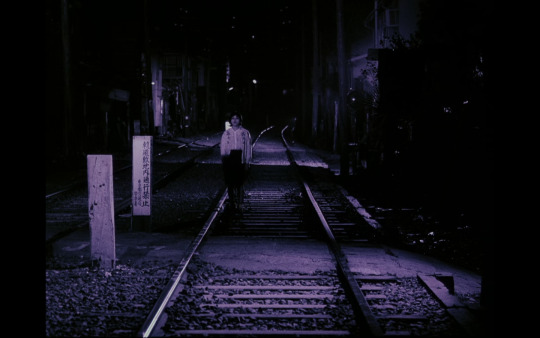
Throw Away Your Books, Rally in the Streets 1971 dir. by Shūji Terayama
7 notes
·
View notes
Text



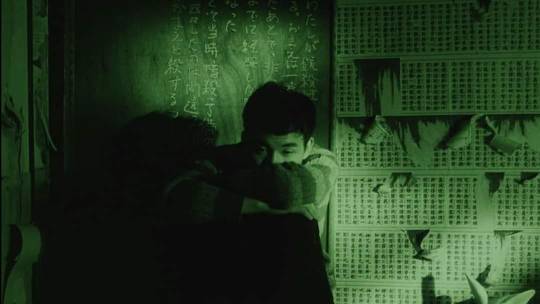

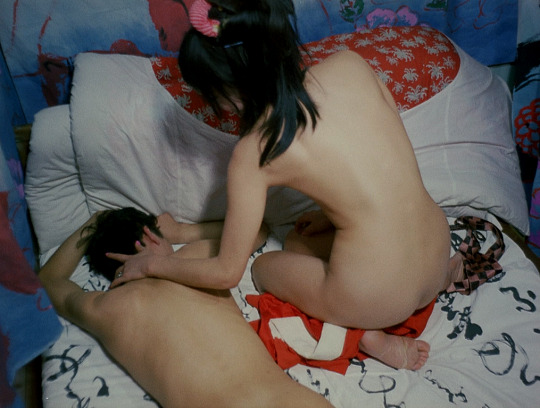


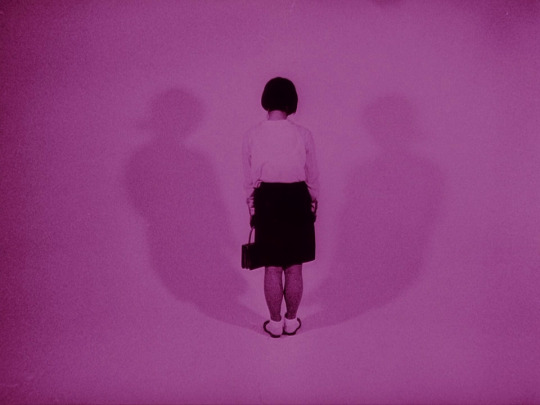
Throw Away Your Books, Rally in the Streets
(1971)
11 notes
·
View notes
Photo


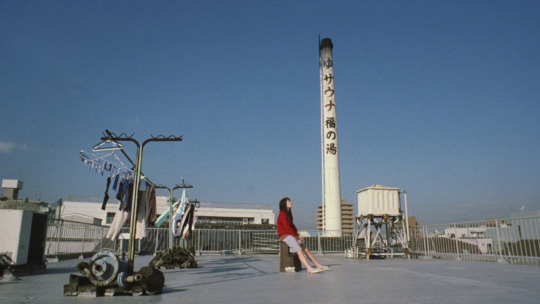


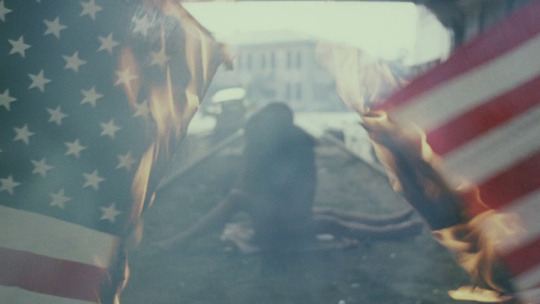
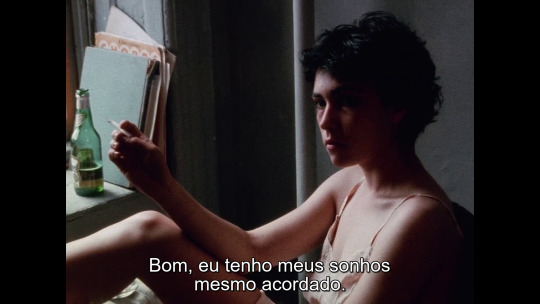
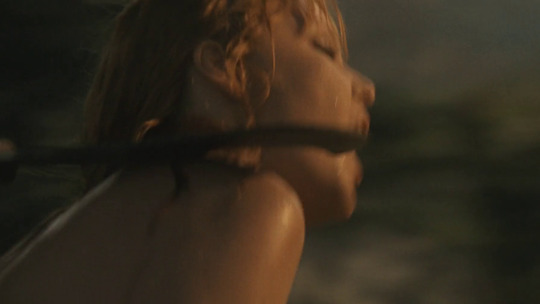

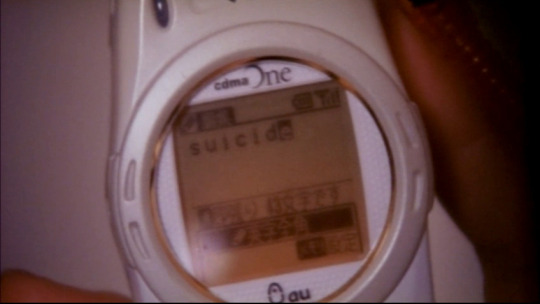
Filmes de Março!!
1. Funeral Parade of Roses (1969)
2. The Taste of Tea (2004)
3. It’s Only Talk (2005)
4. Marte Um (2022)
5.Burning (2018)
6. Throw Away Your Books, Rally in the Streets (1971)
7. Permanent Vacation (1980)
8. A Bay of Blood (1971)
9. Alone in the Dark (1982)
10. Suicide Club (2001)
8 notes
·
View notes
Photo

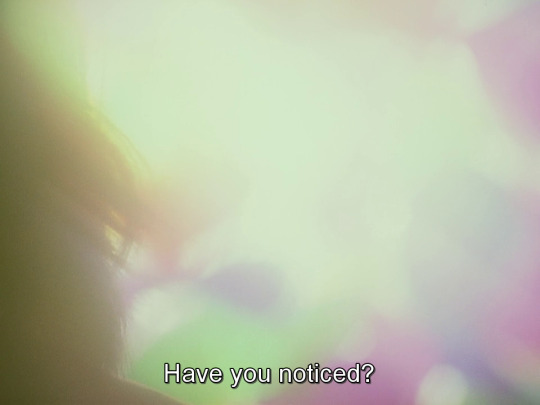
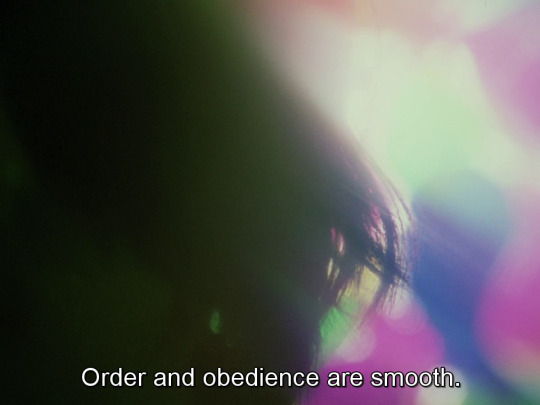
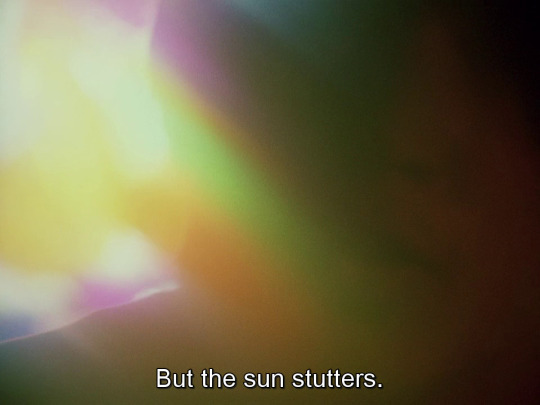
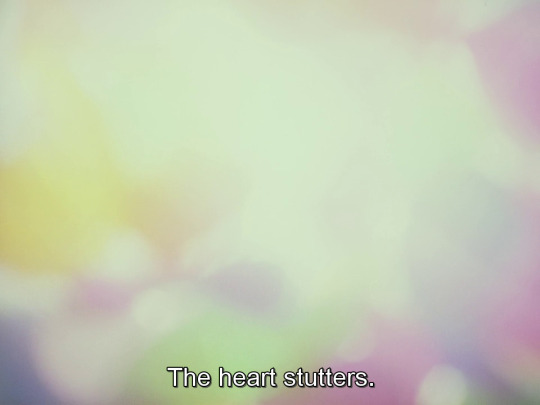

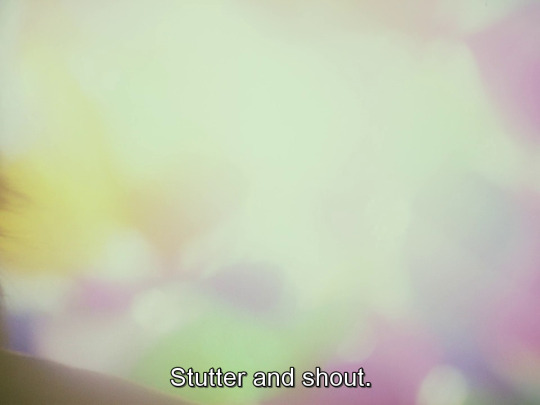
Throw Away Your Books, Rally in the Streets (1971), Terayama Shūji
44 notes
·
View notes
Photo
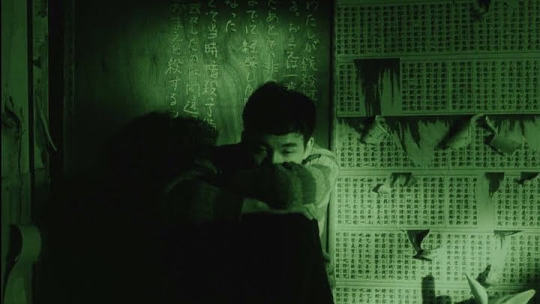
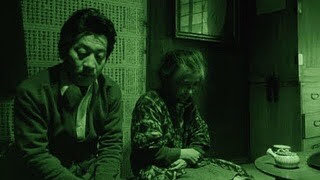
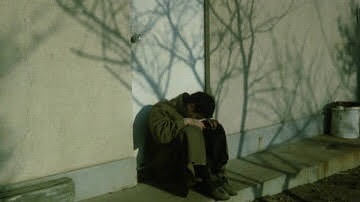

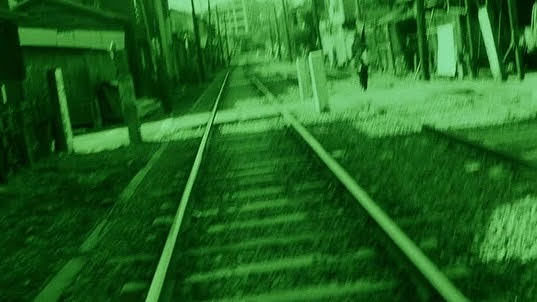
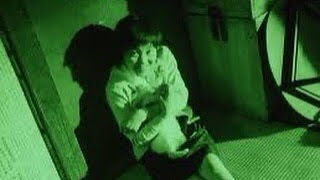
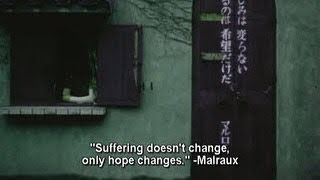
Throw Away Your Books, Rally in the Streets (1971) | Shuji Terayama
// I was born in Korea
and brought up in Japan.
In order to speak without stuttering...
...I choose only words which
I can say without stuttering...
...and string those words together.
So I often end up saying things...
...which I didn't really mean to say.
When I was at primary school...
In our primary school textbook
there was a piece called:
"Carry the sun in the core of your heart"
But I couldn't say "core."
I kept saying "co-co-core" -
so they nicknamed me "chicken."
On another occasion I was
rushed to the doctor...
...after doing too much deep breathing.
They say that if you keep
singing continuously...
...you'll stop stuttering.
I've tried it 100 times.
Stuttering is an ideology.
The sun stutters...
...as it rises between buildings
Beethoven's Fifth Symphony...
...it stutters.
The peace in Vietnam...
...it stutters across fire-swept land.
The clouds are stuttering tramps.
The Korean Strait...
...is a stuttering frontier.
Have you noticed?
Order and obedience are smooth.
But the sun stutters.
The heart stutters.
Resistance movements stutter.
Stutter.
Stutter and shout.
Me...
I'm a shamefaced stutterer.
But it's because I stutter...
...that I can chew over words properly.
In my own mouth.
My own words.
#throw away your books rally in the streets#shuji terayama#experimental drama#japanese cinema#anticapitalism#materialism#film memory#stuttering
21 notes
·
View notes
Photo
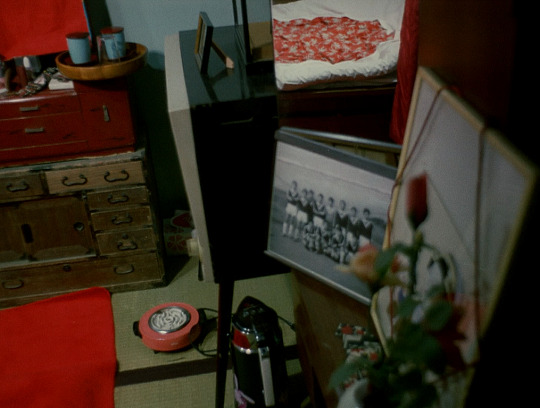
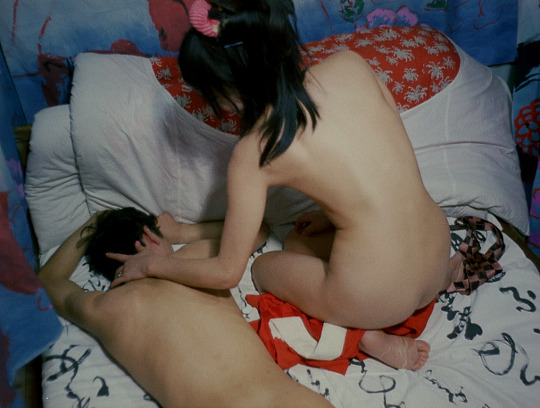
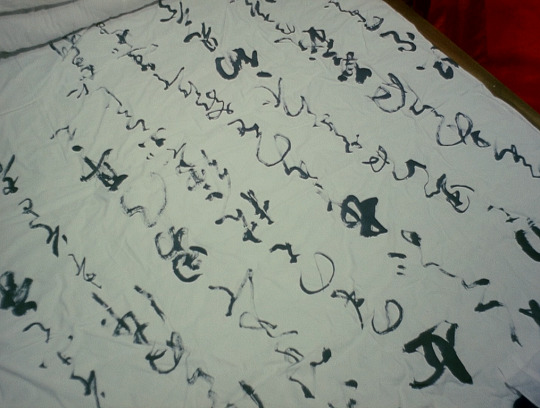
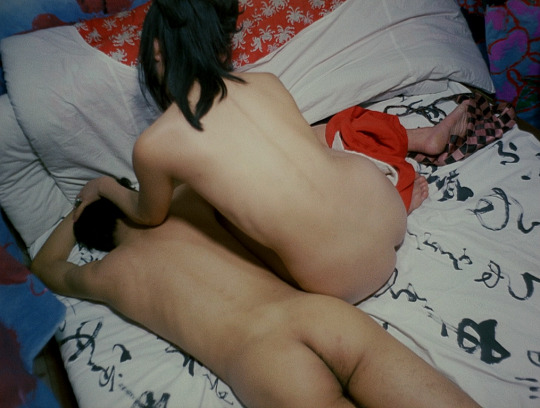
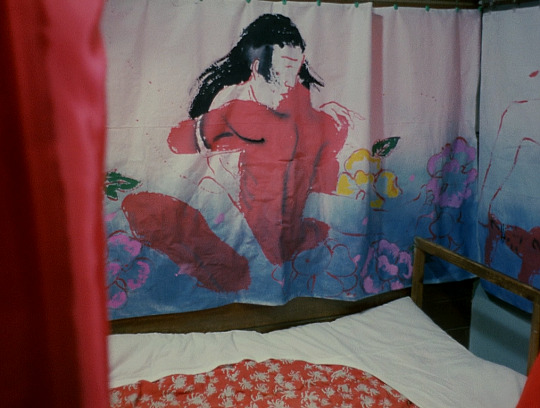
Throw Away Your Books, Rally in the Streets (1971) // dir. Shūji Terayama
#書を捨てよ町へ出よう#Throw Away Your Books Rally in the Streets#Shuji Terayama#my caps#my edits#*shujiterayama
571 notes
·
View notes
Text


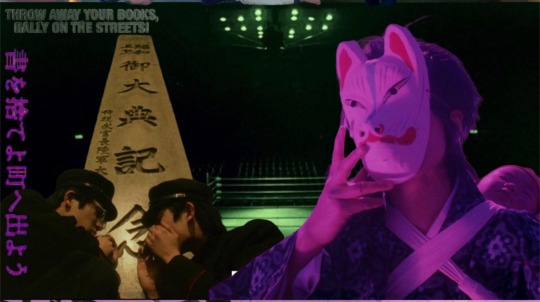
Digital Collages made from screen caps and the original Japanese and English posters of the film ‘Throw Away Your Books, Rally in the Streets’ (1971) directed by Shūji Terayama, shot by Masayoshi Sukita
- N.R. Robinson (2022)
#collage#digital art#digital collage#movie art#poster#japanese film#throw away your books rally in the streets#shuji terayama#masayoshi sukita#film#film art
19 notes
·
View notes
Text
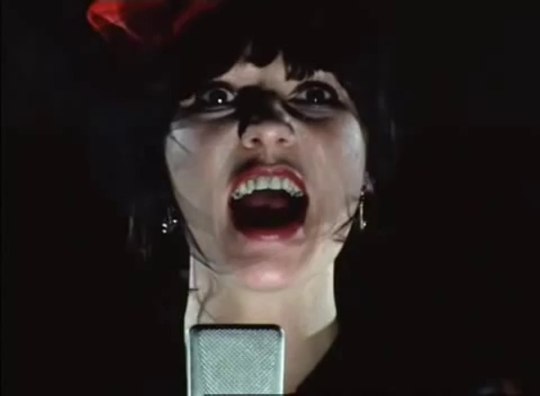
Spectacle Radio ep.100 :: 05.11.23 :: It's horrible, I love it, what is it?
Slava Tsukerman - Liquid Sky (1982)
Main Titles from Quartier Mozart (Jean-Pierre Bekolo, 1992)
Tokyo Kid Brothers - I kind of hate my father (Throw Away Your Books, Rally in the Streets // Shuji Terayama, 1971)
De Kalafe e a Turma - Guerra (Awakening of the Beast // Joes Moijica Marins, 1970)
Stelvio Cipriani - Week-end with Mary (Femina Ridens // Piero Schivazappa, 1969)
Nicola Piovani - Main Titles from Footprints on the Moon (Luigi Bazzoni, 1975)
-
Michael Nyman - Squaline Fallaize (The Falls // Peter Greenaway, 1980)
Zdeněk Liška - The Deadly Invention (Karel Zeman, 1958)
Andrzej Korsynski - Main Titles from The Devil (Andrzej Zulawski, 1972)
Vangelis - Entends Tu Les Chiens Aboyer (Do You Hear the Dogs Barking? // François Reichenbach, 1975)
Stelvio Cipriani - La Polizia Chiede Aiuto #4 (Massimo Dallamano, 1974)
Rheingold - FanFanFanatisch (Der Fan // Eckhart Schmidt, 1982)
Þeyr - Rúdólf (Rokk Í Reykjavík, 1982)
Jean-Michel Jarre - Zoolook (Remix) (Magic of the Universe // Tata Esteban, 1986)
Westernhagen - Celebration (Supermarkt // Roland Klick, 1974)
J.A. Seazer - Buddha Child (Pastoral: To Die in the Country // Shuji Terayama, 1974)
Toru Takemitsu - End Titles from The Ruined Map (Hiroshi Teshigahara, 1968)
Michael Nyman - Castral Fallvernon (The Falls // Peter Greenaway, 1980)
-
Phil Oakley & Giorgio Moroder // Together In Electric Dreams (from Electric Dreams, 1984)
Rheingold // Fan Fan Fantatisch (from Der Fan, 1982)
Hiroyuki Onogawa // from August In the Water (1995)
Chuck Cirino // from Chopping Mall (1986)
Yuji Koseki // from Mothra (1961)
Shintaro Katsu // Otento-san (theme from Tale of Zatoichi, 1962)
music from Out 1 (1971)
Hussein al-Iman // music from Anyab (1981)
Anna Karina // Roller Girl (from Anna, 1967)
Fabio Frizzi & Cricket // You Are Not the Same (from Contraband, 1980)
Stardust Brothers // Crazy Game (from Legend of the Stardust Brothers, 1985)
BED: theme from 300 (2006) slowed down x3
-
Simon Boswell - It’s Horrible, I Love it, What Is It? (Hardware, 1990)
Method Man - Release Yo Self (Prodigy remix) (One Eight Seven, 1997)
Shriekback - The Big Hush (Manhunter, 1986)
Tangerine Dream - Teetering Scales (Miracle Mile, 1988)
Sue Saad - Looker (Looker, 1981)
Sheryl Lee Ralph feat. Cedella Marley & Sharon Marley Prendergast - The Mighty Quinn (The Mighty Quinn, 1989)
3 notes
·
View notes
Text
may 2022
*favorite
the age of shadows (2016, dir. kim jee-woon)
the house of us (2019, dir. yoon ga-eun)
the juniper tree (1990, dir. nietzchka keene)
the land (1969, dir. youssef chahine)
the legend of suram fortress (1984, dir. dodo abashidze & sergei parajanov)*
throw away your books, rally in the streets (1971, dir. shuji terayama)
17 notes
·
View notes
Text
SHUJI TERAYAMA-10 Experimental Japanese Movies

SOURCE: SHUJI TERAYAMA - 10 Avant-Garde Japanese Movies — GATA (gatamagazine.com)
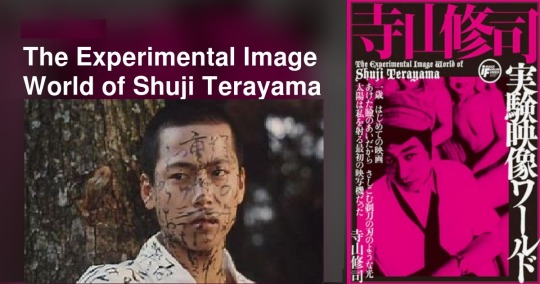
Here, we recommended you, 10 of the best Terayama’s surreal and eerie films that are a must-watch for any fan of groundbreaking cinema.
An imaginary world filled with dreams of erotic fantasy and escape.
1.THE CAGE (1962)

Finished shooting in 1962, the movie’s cast was almost the same as its crew. With a bunch of experimental symbols such as skinny human body, clock and goat flow from one scene to another, the film explores the question of whether a man is a prisoner of time.
youtube
929-10-1 https://youtu.be/za3ExUFRjWo
2. EMPEROR TOMATE KETCHUP (1971)
A young boy is the emperor of a country in which children have overthrown the adults.

Go to original blog at:
3. THROW AWAY YOUR BOOKS (1971)

Conditions have been better for the nameless protagonist: his grandmother is a shoplifter and his war criminal father and sister have an unhealthy, intimate relationship with the family rabbit.
929-10-3 https://ok.ru/video/1625530501742
4. PASTORAL: TO DIE IN THE COUNTRY (Hide and Seek) 1974

A young boys' coming of age tale set in a strange, carnivalesque village becomes the recreation of a memory that the director has twenty years later.
929-10-4 https://ok.ru/video/1584031861358
5. BUTTERFLY DRESS PLEDGE (1974)
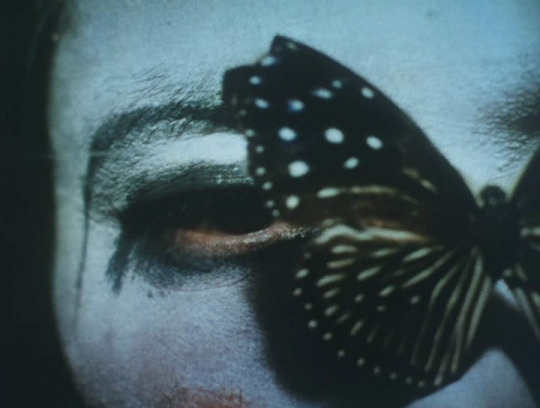
In the heady and extremist Japanese art scene of the late ‘70s, Terayama created a number of unforgettable and highly controversial short films. This is a short movie Terayama’s Experimental Image World.
youtube
929-10-5 https://youtu.be/_xFTQ139eF8
6. LABYRINTH TALE (1975)
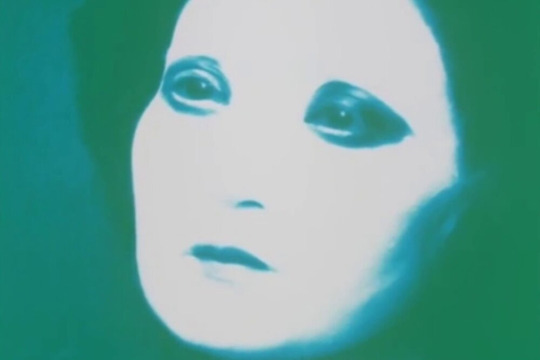
Two men carry a portal door which leads to different realms.
youtube
929-10-6 https://youtu.be/2E0E0vYKA9Q
7. THE ERASER (1977)
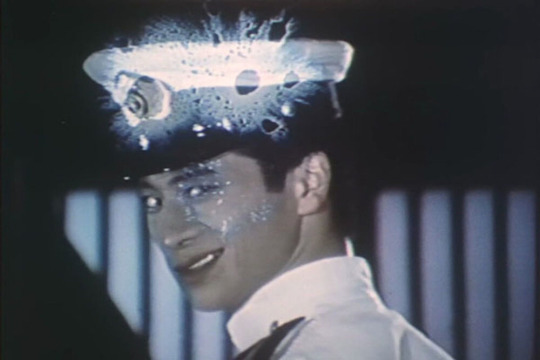
Visions of characters by the seaside from one’s memory are erased by the filmmaker’s hand.
youtube
9259-10-7 https://youtu.be/c4cSbZC0UPk
8. MARUDORO NO UTA (1977)

A “reading film” of delirious image and text, Les chants de Maldoror takes its title and inspiration from Comte de Lautréamont’s 1869 proto-Surrealist poetic novel which, for instance, describes beauty as the chance encounter of a sewing machine and an umbrella on an operating table. In the novel’s six cantos, a young misanthrope indulges in depraved and destructive acts.
youtube
929-10-8 https://youtu.be/SLTj6ZsJN9Y
9. PRIVATE COLECCTIONS (1979)
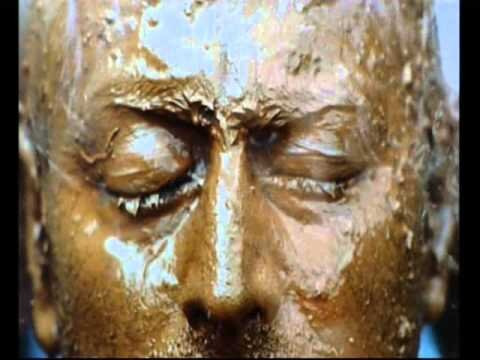
A film composed of three stories. In the first one, a castaway arrives on a paradise island and finds a half-naked, playful and complacent woman. In the second, a teenager tries to remember the lyrics of a lullaby, which leads to sexual and oedipal fantasies. In the third, a rich man in 19th century Paris hires a prostitute for one night.
929-10-9
10. VIDEO LETTER (1982)

Video Letter is a strange and unsettling film that records a correspondence by videotape between Shuji Terayama and his acquaintance, the famous modern poet, Shuntaro Tanikawa.
929-10-10 https://ok.ru/video/2856731413018
0 notes
